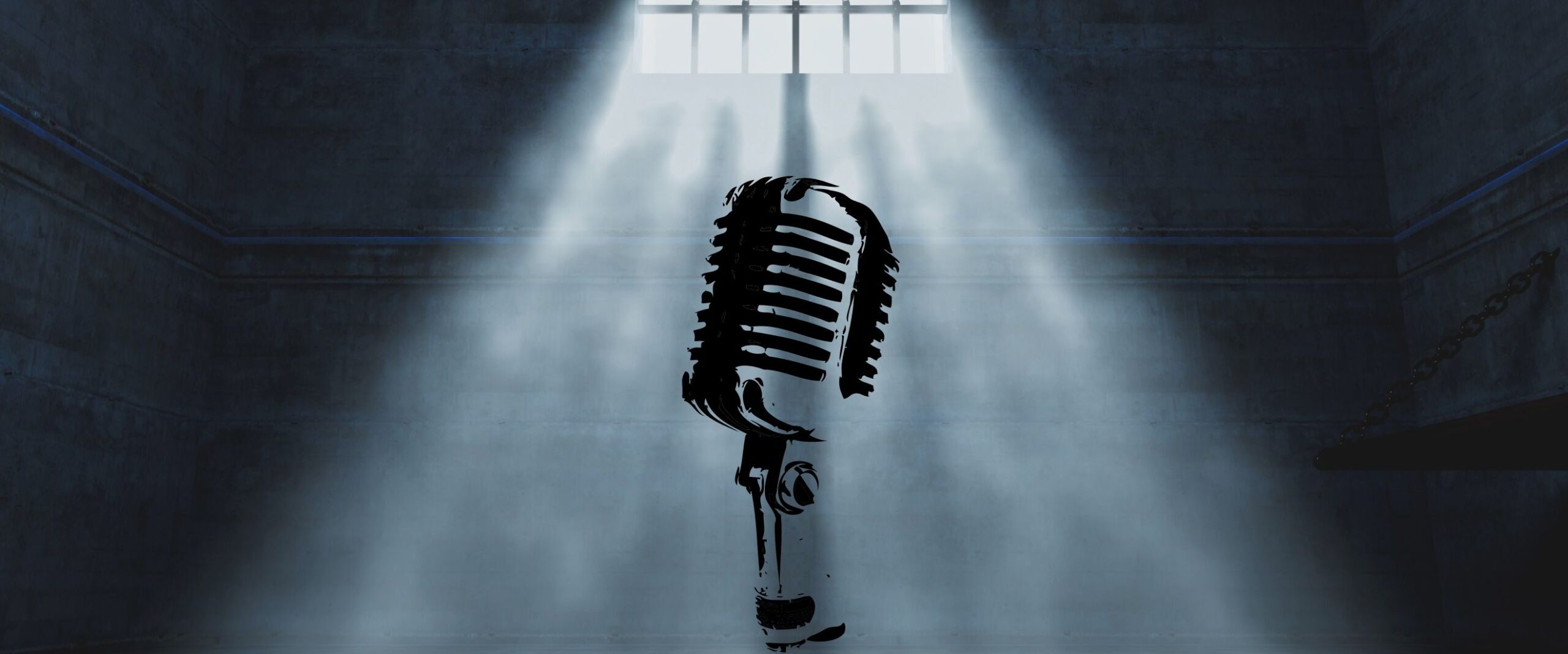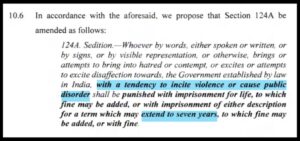Analysis
Law Commission Recommends Stricter Sedition Law
Citing National Security, the 279th Law Commission report recommended increased punishment and wider application of Sedition Law

The Law Commission of India released its 279th Report which recommended retaining the provision for Sedition under Section 124A of the Indian Penal Code, 1860. Section 124A describes sedition as ‘attempts to excite disaffection against the Government established by law’. The provision has been widely criticised for being a tool for curbing dissent.
The report comes a year after the Supreme Court ordered a halt on all proceedings and registering of fresh cases. The SC had granted the Union time to re-examine the law and reconsider its application, in S.G. Vombatkere v Union of India (2022).
What Does the Law Commission Recommend?
1) Incorporating the Kedar Nath Judgement
The Law Commission report states that the essence of Kedar Nath v State of Bihar (1962) needs to be incorporated in Section 124A. Kedar Nath upheld the constitutionality of the Sedition Law stating that it falls within the ‘reasonable restrictions’ on freedom of speech mentioned under Article 19(2) of the Constitution. The Court ruled that the offence of sedition can be established when the words or actions tend to incite violence or lead to public disorder. However, the report states that Section 124A, as it currently reads, fails to clearly cull out the meaning of these actions, resulting in its vague interpretation.
2) Installing a New Procedural ‘Safeguard’
The Commission recommends a major procedural amendment to the Code of Criminal Procedure, 1973 (CrPC) to prevent the ‘alleged misuse’ of the law. It suggests that a police officer, holding the rank of an Inspector or higher, must conduct a preliminary inquiry before the First Information Report (FIR) is filed. Subsequently, based on the findings of the inquiry report, the Central Government may or may not grant permission to file an FIR. This amendment is to be made to Section 154 of the CrPC. The Law Commission highlights that this recommendation was made after taking into consideration the observations of the Supreme Court in S.G. Vombatkere regarding the potential misuse of the law.
3) Increasing the term of punishment
The Commission recommends enhancing the punishment to a period of seven years or life imprisonment, along with a fine. Currently, the punishment is a period of imprisonment of either three years or life imprisonment. The report describes this punishment as ‘odd’ as there is a discrepancy among other provisions found in Chapter VI of IPC, which lists the ‘Offences against the State’. Section 124A is found here. The report aims to address this inconsistency by aligning the punishment of Section 124A with other provisions under Chapter VI.

4) Inserting New Words in the Provision
The Report recommends the insertion of the words ‘tendency to incite violence or cause public disorder’ in the provision. It defines ‘tendency’ as an ‘inclination to incite violence or public disorder rather than proof of actual violence or imminent threat to violence’. Thus, the consequence of an action won’t be considered if ‘inclination’ is established. The Report highlights that Kedar Nath established that proof of violence is not necessary to establish the offence of sedition. Instead, the Judgement primarily relies on the tendency of the words or actions to incite violence or disturb public order.
Reasons for Retaining
The Report justifies retaining Section 124A on five aspects:
- It is necessary to protect national security from the threat of radical, anti-national, and secessionist elements. They reasoned that the growth of social media has played a role in propagating radical thoughts against India, often instigated and facilitated by ‘adversarial foreign powers’.
- It is a ‘reasonable restriction’ to the fundamental right of speech and expression found under Article 19(1)(a) of the Indian Constitution. They reasoned that the restrictions of ‘public order’, and ‘incitement to an offence’ fall within the ambit of Sedition law.
- It is the ‘traditional penal mechanism’ to address the issue of terrorism. It argues that the mere presence of other counter-terrorism and security laws, such as the Unlawful Activities Prevention Act, 1967, and the National Security Act, 1980, is not a sufficient reason to abolish the sedition law. The report states that without the sedition law, individuals involved in seditious activities could potentially be prosecuted under these special laws, which often carry more stringent provisions.
- The Report states that ‘colonial legacy’ is not a strong enough basis for striking down the law in India’s modern democratic context. It points out that other colonial legacies like the Police Forces and All India Civil Services are still retained without opposition on this ground.
- The Report highlights that in countries where sedition laws have been struck down, other laws addressing seditious activities have been incorporated within their treason and counter-terrorism laws.



